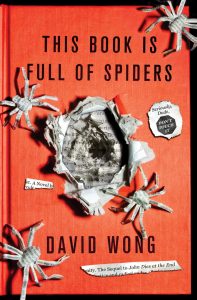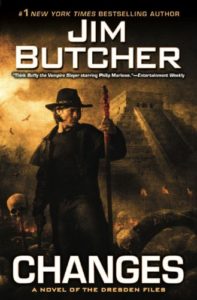 I saw J.J. Abram’s Star Trek sequel on approximately opening night, which raises the entirely valid question of “why haven’t you reviewed it, that was weeks or months ago, and in the meantime it has been universally[1] panned by the internets, and also you could have saved me some trouble over here, so why are you wasting my time now?” Well, the long answer is that there was something that didn’t quite gel for me and I knew I would see it again because of having parents that I see movies with, but then scheduling failures made that never actually happen until yesterday, what with my active camping life and all. The short and far more relevant answer is because I (apparently) was waiting for all of that panning to occur, so that I could write a review in defense of Star Trek Into Darkness[2]. To that end: the remainder of the review contains spoilers. Since I really am pretty sure everyone has already seen it, and also since my cuts survive nowhere except here on the site anyway, I opt not to care so much.
I saw J.J. Abram’s Star Trek sequel on approximately opening night, which raises the entirely valid question of “why haven’t you reviewed it, that was weeks or months ago, and in the meantime it has been universally[1] panned by the internets, and also you could have saved me some trouble over here, so why are you wasting my time now?” Well, the long answer is that there was something that didn’t quite gel for me and I knew I would see it again because of having parents that I see movies with, but then scheduling failures made that never actually happen until yesterday, what with my active camping life and all. The short and far more relevant answer is because I (apparently) was waiting for all of that panning to occur, so that I could write a review in defense of Star Trek Into Darkness[2]. To that end: the remainder of the review contains spoilers. Since I really am pretty sure everyone has already seen it, and also since my cuts survive nowhere except here on the site anyway, I opt not to care so much.
See, what everyone seems to have disliked so much (aside from the standard summer blockbuster lazy shortcuts) is “why are you going back to the Khan well just because this is your second movie?” and “how are we supposed to believe the emotional connection between Kirk and Spock when you haven’t established it yet?” Which are entirely valid questions, but I think Abrams was coming in from the opposite direction. He doesn’t have three years of TV episodes and a decade of fans clamoring and fictioning and relationshipping and all of that to build from, he only has his previous movie, which got Kirk and Spock from visible dislike to something nearing respect.
The first thing that it’s important to remember, then, is that this is not a remake of the Wrath of Khan, certain climactic engine room sequences aside. It’s a remake of Space Seed, with the perfectly fair excuse that Khan and his ilk were found by someone else because Starfleet was crippled by that one Romulan mining ship last time, and isn’t spread out and exploring everywhere yet. So, yes, you can call Abrams cheap for picking a Star Trek villain so iconic they made a movie about him later, BUT, like I said, he doesn’t have the room to explore all these growing relationships comfortably, and I will not fault him for taking a shortcut on the bad guy so the audience understands the stakes immediately. (I also will not blame anyone else for faulting him that, though; it could have been done other ways, I reckon.)
Anyway, my second and much more relevant point is this. The scene I watched at the end of the engine room sequence was not an emotional payoff about friendship and loss that didn’t work on multiple levels, because it wasn’t a payoff scene at all. That was the moment in which Kirk and Spock became the friends we are meant to suppose they were always destined to become. Even knowing the Khan scream and the tribble were around the corner, both actors sold the sense of losing something they had just found, and it was more moving the second time around when it clicked into place than my first time had been.
Which, alas, brings me to the way the movie really did fail. Yes, there’s no fifteen years of accumulated backstory to rely upon, and yes, I was not seven years old when I was watching this particular film. All the same, Kirk’s “death” was terribly cheap. Why is McCoy randomly injecting dead tribbles with super-blood in the first place? Lamest, most random science ever. And as much as I respect the method of finding and exposing that moment of friendship on the screen, a sacrifice is still a sacrifice. I don’t want to watch a contrived third movie in which they race to find a cure for Kirk-on-ice, even more remaketastic than this one was, I admit that. And after just having praised the way the scene started, it’s pretty lame of me to turn around and fault the same scene from the other direction. I can’t say what I would have done differently, but man was it a clumsy band-aid on the problem. The moreso when I compare myself walking out of the theater at age seven, crying because how could Mr. Spock really be dead, and now today’s seven year-old has magic tribble blood?[3]
Upshot: it’s still not as good as it should have been, but I think it’s a lot better than I’m seeing it be given credit for. Upshot of the upshot: I really wish this cast would be put on television instead of making another movie in another few years or being put back on the shelf forever. Because the parts that work, they work really well, and the parts that don’t work are mostly Hollywood’s fault.
[1] Galactically?
[2] It really makes me twitch that IMDB expects that preposition to be capitalized even in the absence of a colon. I will not be defending the title part of the movie, thusly.
[3] I’m well aware that’s not what happened, but I’ve also talked to seven-year-olds lately, and it’s not nearly wrong enough for them to be well aware it’s not what happened.
 The thing about John Dies at the End is that, despite the highly visible spoiler, it still left some room for a review. Who is this John fellow anyway, for example, and what kinds of emotions will I experience when he dies? The problem with David Wong’s finally-arrived sequel, This Book Is Full of Spiders with its helpful sticker warning of Seriously, Dude, Don’t Touch It, is that pretty well sums the book up. It is very much full of spiders, that book. Invisible spiders, on the bright(?) side, unless you are like David and his friend John Cheese and have been dosed with an alien drug called Soy Sauce on the street, which gives you all kinds of time-and-space-spanning knowledge and also allows you to see all the invisible things in the world that your brain usually protects you from, like (in this case)
The thing about John Dies at the End is that, despite the highly visible spoiler, it still left some room for a review. Who is this John fellow anyway, for example, and what kinds of emotions will I experience when he dies? The problem with David Wong’s finally-arrived sequel, This Book Is Full of Spiders with its helpful sticker warning of Seriously, Dude, Don’t Touch It, is that pretty well sums the book up. It is very much full of spiders, that book. Invisible spiders, on the bright(?) side, unless you are like David and his friend John Cheese and have been dosed with an alien drug called Soy Sauce on the street, which gives you all kinds of time-and-space-spanning knowledge and also allows you to see all the invisible things in the world that your brain usually protects you from, like (in this case) 

 If you were looking for the book with the most understated title, I would definitely offer into contention
If you were looking for the book with the most understated title, I would definitely offer into contention